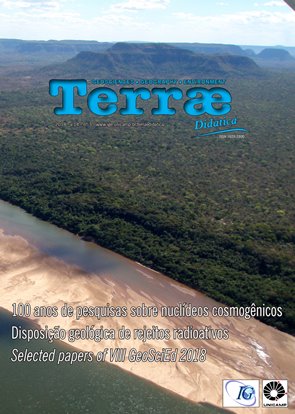Abstract
The initial knowledge of college-level introductory geoscience students is poorly understood, yet greatly affects the ability of instructors to create an effective learning environment. Here we review past research into several fundamental Geoscience con-cept areas to better understand misconceptions, alternative conceptions and preconceptions related to Geologic Time, Plate Tec-tonics and geohazards. We combine this review of past work with new research on what students understand about minerals in order to address the disconnect between instructors´ perceptions of their students´ initial knowledge, with what the students ac-tually understand, in order to create a basis for decisions on course structure and pedagogy.References
Anderson S.W, Libarkin J.C. 2016. Conceptual mobility and entrenchment in introductory geoscience courses: New questions regarding physics’ role in learning Earth science concepts. J. Geosc. Educ., 64:74-86.
Cheek K.A. 2010. Commentary: A summary and analysis of twenty-seven years of geoscience conceptions research. J. Geosc. Educ., 58:122-134.
Dove J. 1998. Students’ alternative conceptions in Earth science: A review of the research and implications for teaching and learning. Research Papers in Education, 13:183-201.
Gosselin D.C., Macklem-Hurst J.L. 2002. Pre/ Post-knowledge assessment of an Earth science course for elementary/middle school education majors. J. Geosc. Educ., 50:169-175.
Kusnick J. 2002. Growing pebbles and conceptual prisms – understanding the source of student misconceptions about rock formation. J. Geosc. Educ., 50:31-39.
Leonard, M.J., Kalinowski, S.T., and Andrews, T.C. 2014; Misconceptions yesterday, today and tomorrow. CBE, Life Sciences Education, 13:179-186.
Libarkin J.C., Ward E.M.G., Anderson S.W., Kortemeyer G., Raeburn S.P. 2011. Revisiting the GCI: A call to the community. GSA Today, 21.
Libarkin J.C., Anderson S.W. 2008, Development of the Geoscience Concept Inventory. In: National STEM Assessment Conference, Washington DC, October 19-21, 2006. Proc…, p. 148-158.
Libarkin J.C., Kurdziel J.P., Anderson S.W. 2007. College student conceptions of geological time and the disconnnect between ordering and scale. J. Geosc. Educ., 55:413-422.
Libarkin J., Kurdziel J. 2006. Ontology and the teaching of Earth system science. J. Geosc. Educ., 54:408- 413.
Libarkin J.C., Anderson S.W. 2006. The Geoscience Concept Inventory: Application of Rasch Analysis to Concept Inventory Development in Higher Education. In: X. Liu, ed. 2006. Rasch Applications in Science Education. JAM Publ. p. 45-73.
Libarkin J.C., Anderson S.W. 2005. Assessment of Learning in Entry-Level Geoscience Courses: Results from the Geoscience Concept Inventory. J. Geosc. Educ., 53:394-401.
Libarkin J.C., Anderson S.W., Dahl J., *Beilfuss M., Boone W., Kurdziel J.P. 2005. Qualitative analysis of college students’ ideas about the Earth: Interviews and open-ended questionnaires. J. Geosc. Educ., 53:17-26.
Libarkin J.C., Anderson S.W., Boone W.J., Beilfuss M., Dahl J. 2002, The Geoscience Concept Test: A new assessment tool based on student misconceptions; EOS, Trans. Am. Geophys. Union, 83. (Abstract ED11B-0047).
A Terrae Didatica utiliza a licença do Creative Commons (CC), preservando assim, a integridade dos artigos em ambiente de acesso aberto.

